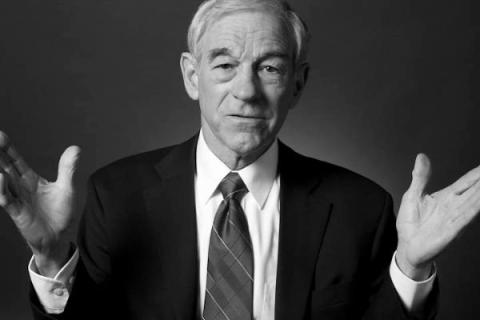The Ron Paul 2012 Revolution supporters might have delivered some revenge for being shunned in Tampa, as a close look exit polls reveal the group could have carried Romney to victory. It’s unclear how many Paul supporters chose to cast votes for Romney in battleground states, but after the Republican National Convention, a number of staunch supporters within the Ron Paul Revolution Army vowed to never cast a vote for Romney.
The election result totals show the loss of Ron Paul supporters may have cost the GOP in key battleground states. The victory margin in some swing states where Obama beat Romney is less than the number Ron Paul pulled in the primary. In Ohio, Romney lost by just over 100,000 votes but Ron Paul pulled in 113,256 during the primary. In New Hampshire, Romney lost by 41,659 votes, where Paul pulled in 56,872 in the primaries. Similar patterns emerge in Virginia and Florida.
Going on the assumption that Ron Paul supporters did not show up for Mitt Romney, the unrecognized delegates that were marched off the Republican convention floor could have possibly carried the votes might have given Romney or the Republican Party a better chance in the election. You add the 64 electoral votes from New Hampshire, Virginia, Ohio and Florida to Romney’s 206 and the end result is 270 -- just enough to have given Romney the presidency.
Another question to be asked is: Could Ron Paul have been a better Republican presidential candidate than Mitt Romney?
Ron Paul is popular within the younger demographic that Romney seems to have missed. Ron Paul's stance on foreign policy and his anti-war message on Afghanistan and Iraq have never wavered, making him a more consistent candidate than Romney. It's also possible that Paul could have done better with women since his views on abortion, while being pro life, show that he is willing to be flexible by making it a state, rather than federal, issue. The separation between his personal religious views and his political policies could have garnered the support of those fiscally conservative, yet socially liberal, voters.
Additionally, Ron Paul’s fiscal stance on the economy, taxes, and balancing the federal budget are right in line with the main issues that the GOP based Romney’s campaign around.
The numbers as they stand make for some fun speculations about how Ron Paul could have contended against Obama. The numbers don’t show how Ron Paul might have done with independents that were unable to vote in primaries because they don’t register Republican.
There’s also something to say about Obama receiving 10 million less votes than he did in 2008. That’s 10 million voters that were dissatisfied enough with Obama to not vote for him a second time, but not satisfied enough with Romney as a choice to vote against him. That's 10 million people that Ron Paul as a national candidate could have reached. In Colorado, more people voted to legalize marijuana than voted for Obama, and he still won that state.
If the GOP takes the election night beating as an opportunity to reassess where the values they claim to stand for lost touch with the majority of voters, they’d do well to rethink their dismissive attitude towards Ron Paul, the perspective he brings to table, and the supporters that would follow him anywhere. The claim was always that Ron Paul was unelectable. That is true only in a GOP primary. Looking at the numbers from the election, the demographics where the Republicans lost, and the initiatives where states' rights were asserted to legalize gay marriage and end marijuana prohibition, it looks like Ron Paul might have had a chance. At the very least, Romney would have stood a better chance had the GOP not turned away the Ron Paul supporters at the national convention.
The talk since the election has been centered on where the GOP can find a new direction, so they can be competitive in 2016 and beyond. It appears that the direction they need has been running for their nomination for eight years.
